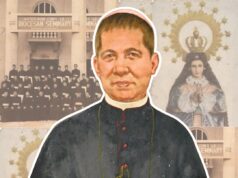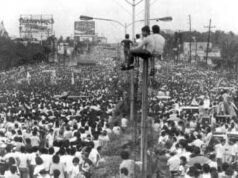Old political dynasties have been booted out, new ones are sprouting. This was the observation of political analyst Ramon Casiple, executive director of the Institute for Political and Economic Reform (IPER).
New ones, including that of Filipino boxing icon, Cong. Manny Pacquiao have sprouted and could lord it over in their respective areas for a long time, Casiple said.
Pacquiao won a second term as Saranggani congressman without campaigning for himself but for his wife, Jinkee, as vice governor of the province and his barangay captain brother, Roel, who ran but lost in the General Santos City congressional race.
Casiple explained that while a number of political dynasties were defeated in this year’s polls, they could easily make a comeback in 2016 and return to power if those who won this year fail to live up to the expectations of the electorate.
“Election defeat is not an effective prescription to battle political clans and legislation remains a potent weapon against them,” Casiple explained.
The failure of the anti-dynasty bills in both the Senate and the House is apparently due to the fact that many of the lawmakers belong to, or are benefiting from these powerful political families.
Casiple said the reversion to a two-party system could put an end to dynasties, especially at a period when the electorate is starting to mature. He agreed that this proposal may take a long time to realize in view of the fact that it will require amendments to the 1987 Constitution which may not get any support from the Aquino government.
q q q
Unless government steps up spending in energy and power generation, the financial losses being suffered by Mindanao due to its crippling power outages may be replicated in the premier investment centers of Luzon.
Thus warned Subic Bay Freeport Zone (SBFZ) locator and Eastern Petroleum chairman Fernando Martinez as he predicted electricity demand at the economic zone and elsewhere rising at a higher pace once the recent investment upgrades translate into an influx of foreign direct investments (FDIs) into the country leading to greater business activity.
Eastern Petroleum owns a mega gas station at the freeport with its retail network spanning numerous stations across the country including Mindanao.
Martinez said “there is a need to address the ever-growing need especially here in Metro Manila and Luzon where the demand growth outpaces that of the whole country.”
“We cannot risk having businesses and industries in the area suffer the same fate as those in Mindanao affected when more than 50 percent of the country’s GDP comes from them,” he said.
Martinez said the Luzon-wide blackout on May 8 underlined the critical supply level in the mtropolis and the country’s main island.
He said from his experience as an investor, stable and reliable power will spur more industries and spending increasing national consumption including that of fuel.
“At the same time, we want to keep Subic as an investment and tourism hub that will spur more earnings not only for our business but also for other locators and investors,” he said.
Martinez believes that “power generation projects already on stream or still on the drawing boards should be put on the fast lane” to augment the current supply of energy in the Luzon grid, especially after the Department of Energy (DoE) projected that the island group would need 600 megawatt of new capacity three years from now.




